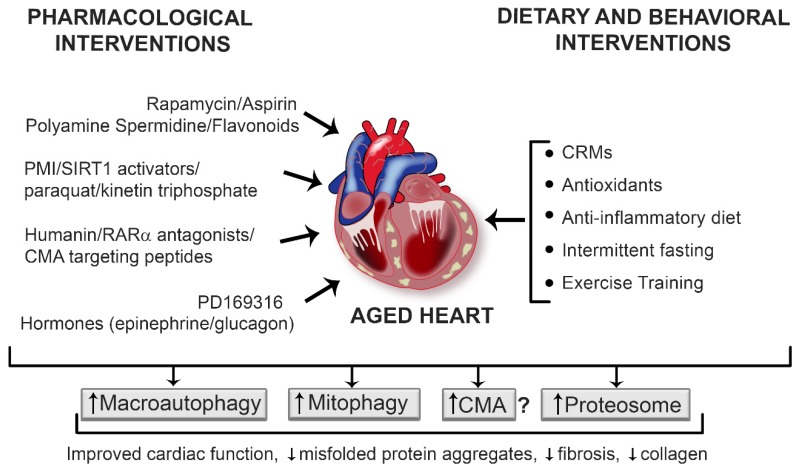Figure 3.
Interventions to upregulate protein quality systems in the aging heart. Nutraceutical (e.g., spermidine), pharmacological (e.g., rapamycin, SIRT1 activators), and dietary and lifestyle (e.g., exercise training, intermittent fasting) approaches have been used to boost protein quality control systems in the heart, in an effort to lessen the severity, delay the onset, or prevent age-associated proteotoxicity and cardiovascular dysfunction. Evidence for the degree of efficacy afforded by each procedure is described in the text. Upregulating the protein quality control mechanisms can prove to be beneficial against various age-related cardiac pathologies. mTOR: mammalian target of rapamycin; PMI: p62-mediated mitophagy inducer; SIRT1: silent mating type information regulation 2 homolog; RARα: retinoic acid receptor alpha; PD169316: p38 MAPK inhibitor; CRMs: caloric restriction mimetics.

